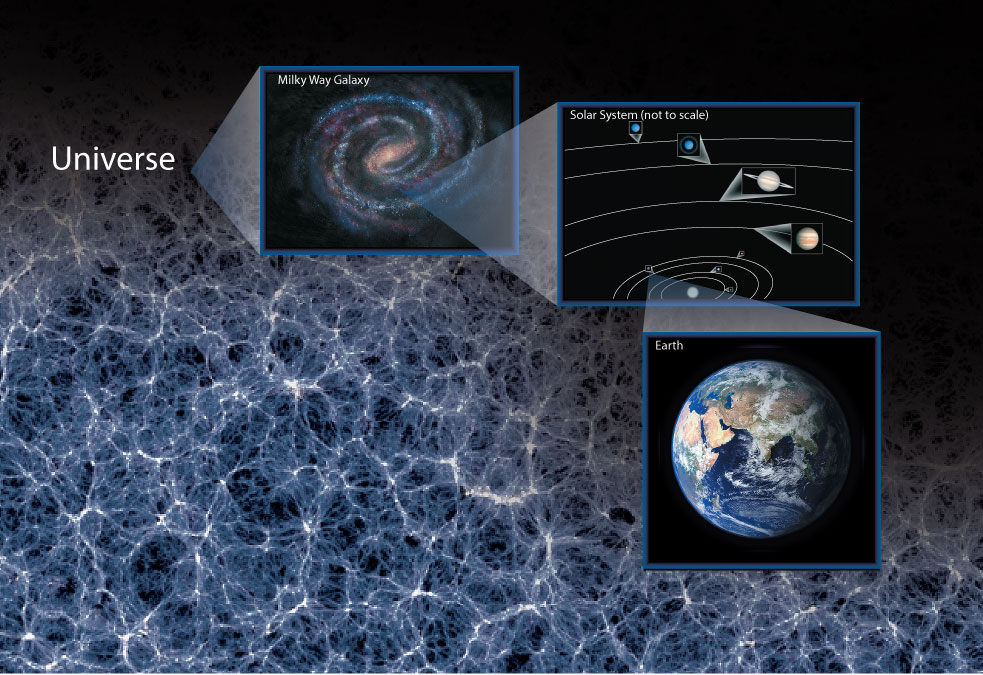
Section Learning Goals
By the end of this section, you should be able to give detailed answers to the following questions:
- How big is the Earth–Moon system?
- How big is our solar system?
- How far are the stars?
- How big is the Milky Way Galaxy?
- How big is the universe?
Before you continue, take a few minutes to discuss the above Learning Goal questions in small groups or as a class. For example, you might discuss what (if anything) you already know about the answers to these questions; what you think you’ll need to learn in order to be able to answer the questions; and whether there are any aspects of the questions, or other related questions, that you are particularly interested in.
Have you ever heard someone talk about something big from everyday life, and call it astronomical? It happens a lot. For example, you might hear someone say, “Wow, the price of that ring is astronomical!”
There’s a reason astronomical means really big. To understand it, let’s again go through the basic steps in our cosmic address: Earth, solar system, Milky Way Galaxy, universe. This time, however, let’s think about how big these things really are, and how much the scale changes as we go from one step to the next. As you’ll see, most everyday uses of the word astronomical really are quite small compared to the truly astronomical scales of our universe.
Journal Entry
It’s Astronomical (or not)
For today’s page in your journal, find or recall at least two quotes in which someone has said that something is “astronomical.” Write down each quote, leaving room after each one for a couple more sentences that you will fill in later. Over the next few days, you should watch for other statements using the word “astronomical,” and add them as you come across them; be sure to save a little room on the page for these additional quotes that you may find in the coming weeks.